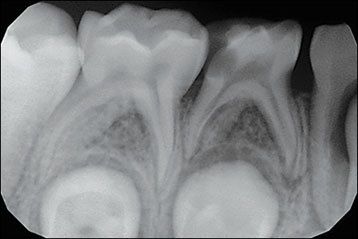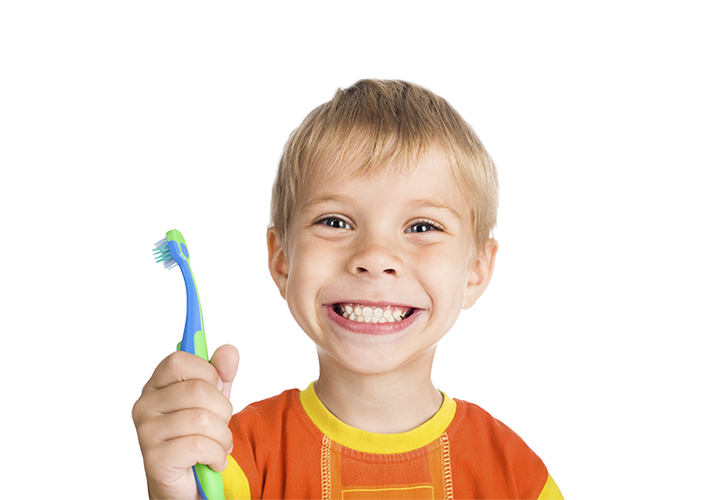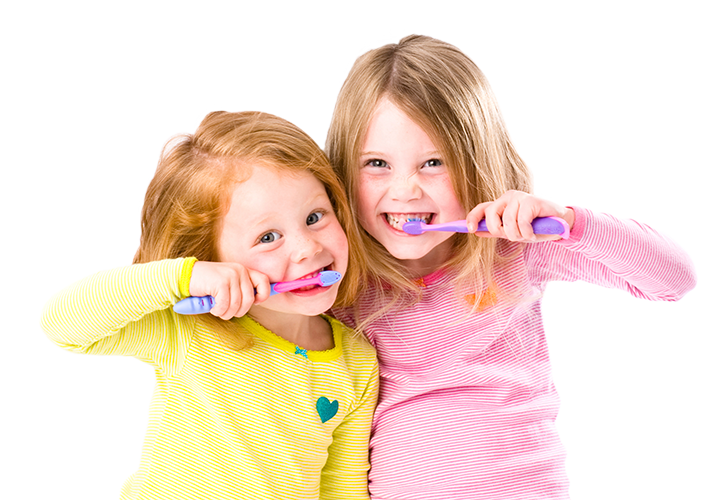FREQUENTLY ASKED QUESTIONS
What is a pediatric dentist?
Back To Top
Pediatric dentists are dental specialists who complete residency training after finishing dental school. As one of the recognized specialties of the American Dental Association, this additional training focuses on the age-appropriate treatment of children from infancy to the late teenage years, including those who are medically compromised or have special health care needs. You can think of us as a "dental pediatrician" whose mission is to deliver dental care for children of all ages, but especially for the ones who may be very scared or anxious and need something extra to help them get through their visits.
Pediatric dentists are well-versed in: child psychology, advanced behavior management, facial growth & development, nutrition, diagnosis and prevention of tooth decay, phase-I (interceptive) orthodontics, managing dental trauma, pediatric dental sedation, and hospital dentistry.
In addition, pediatric dentists who are board-certified have passed further voluntary exams to demonstrate their specialized knowledge and skill. Pediatric dentists who obtain board-certification become Diplomates of the American Board of Pediatric Dentistry.
Why see a pediatric dentist?
Back To Top
Did you know that dental caries (tooth decay) is one of the most common chronic illnesses affecting children all over the world? It is a transmissible, infectious disease that also happens to be largely preventable!
Similar to how children see the pediatrician for well-checks and assessment of developmental milestones, it is important to establish a “dental home” for your child. A “dental home” is an ongoing relationship between the dentist and the patient that promotes continuous and comprehensive oral health care. According to the American Academy of Pediatric Dentistry, children who have a dental home are more likely to receive appropriate preventive and routine oral health care.
At Han Pediatric Dentistry, we will work with you and your child by applying the latest scientific evidence in preventing oral disease and treating it when necessary. We will explain preventative care, oral hygiene instructions, and any needed treatment in simple, easy terms. Your child will feel good about going to the dentist in a safe and comfortable environment.
When is the best time to bring my child in?
Back To Top
Both the American Academy of Pediatrics (AAP) and the American Academy of Pediatric Dentistry (AAPD) recommend for children to have their first dental visit after their first tooth erupts, but no later than age one. If your child is older but has still not seen a dentist, that is OK and we are here to help!
Why are baby teeth so important?
Back To Top
Primary teeth (baby teeth) are very important in maintaining your child’s overall health and quality of life. Untreated oral diseases such as tooth decay and gum disease will cause problems that can also damage the developing permanent teeth. Though the first baby teeth (in front) usually shed around age 6-7, the rest may not fall out until your child is a teenager.
Diseased baby teeth that are not treated could lead to:
- Pain and swelling due to infection (could become life threatening)
- Disturbances in facial growth and development
- Reduced ability to chew food
- Speech problems
- Orthodontic problems (teeth shifting and negatively changing the bite)
- Multiple absences from school!
Do I need a referral for my child to come see you?
Back To Top
No. Though some patients might be referred to us by their pediatrician or family/general dentist, a referral is not required. You are welcome to contact us anytime to schedule an appointment.
What happens at the first visit?
Back To Top
Our goal is to make the first visit as pleasant as possible both for you and your child. We realize that every patient is unique and that not everyone has the same dental needs. If your child is old enough, you can let him/her know about the upcoming visit and that the dentist and staff will answer any questions. However, the fewer specifics your child is told, the better.
Examples:
- If you have had bad dental experiences yourself, you do not need to share those with your child.
- NEVER use the words "SHOT," "NEEDLE," "DRILL," or "PULL TOOTH."
- If the child asks if anything will HURT, say that we will talk to the doctor about it together.
- Older siblings or friends may tease your child about an upcoming appointment, please monitor what is said at home.
If your child has any special needs, please make sure to let us know when you make your appointment so that we can set aside enough time to address all your concerns and needs.
Why do you need to take X-rays?
In a nutshell, we cannot diagnose what we cannot see. Dental radiographs (X-rays) are a critical diagnostic tool that shows us what we cannot see with our eyes or feel with our instruments. For example, we cannot see between teeth that are touching or into the jaw bone.

Example X-ray of a child showing a deep cavity that has infected the tooth pulp.
Developing permanent teeth are also visible.
Besides helping us find cavities that might not be visible to the eye, X-rays are critical in helping us assess:
- Developing permanent teeth (sometimes they are missing, growing in the wrong direction or there might be extra teeth)
- Presence of dental abscess (infected tooth/jaw)
- The extent of an oral injury (identify fractured roots or bone)
- Bone disease
- Oral cancer
- Orthodontic issues needing specialty consultation
At Han Pediatric Dentistry, we are cognizant of any concerns you may have regarding X-ray radiation. We assure you that we will take utmost precaution to minimize your child’s exposure. This is accomplished with low-dose, high resolution digital X-ray technology that uses 90% less radiation compared to older generation film X-rays used in the past.
X-rays are taken on based on your child’s individual diagnosis and risk factors for disease. In general, the lower the risk factors, the less frequently they will need to be updated.
What do I bring to the first appointment?
Back To Top
- Please complete the online patient registration forms prior to your appointment.
- Referral form (if given by your pediatrician or another dentist)
- Pediatrician's name and phone number
- List of any medications (even their toothpaste! You can take a picture of it with your cell phone)
- List of any allergies to drugs, food, or latex
- Any x-rays taken at another dental office
- Dental insurance card
- Please have the child accompanied by a parent or legal guardian
What to expect:
Back To Top
Infants and toddlers (under age 3):
- A big part of this visit will be to identify what you as the parent already know about oral health, and inform you to get you where you should be.
- We will connect with your child and discuss his/her medical history, identify your concerns, and get a sense of your child's current oral health status, habits, and risk factors for disease.
- Dr. Han will perform a comprehensive exam while demonstrating proper oral hygiene techniques. This may be performed with the child in a "lap-to-lap" position with the parent and the doctor so that the parent can see what the doctor is seeing. Eventually, our goal is to have your child seated alone in the chair as soon as he/she is comfortable.
- Depending on your child's risk factors for tooth decay and dental diagnosis, topical fluoride may be recommended and applied.
- Concerns will be relayed to you regarding harmful habits, risk factors for cavities and/or gum disease, and age-appropriate recommendations will be made to address them.
- Based on the initial diagnosis, Dr. Han will advise on how frequently we should see your child for checkups.
Children age 3 and older:
- As your child allows us to do so, we will perform checkups and cleanings with him/her seated alone in the big kid chair!
- As their teeth may start to show signs of staining or tartar build up, we may have to scale or "scratch" off the tartar and polish the teeth with different instruments.
- As soon as your child allows, and if indicated by signs of tooth decay, history of trauma, or other noted pathology, intra-oral x-rays will be recommended to allow a more definitive diagnosis of your child's dental health.
- A treatment plan will be presented with an explanation of findings seen in today’s visit.
What is nitrous oxide (laughing gas)?
Back To Top
Nitrous oxide (N2O, or laughing gas) is a safe, adjustable, rapid-onset, and reversible inhaled agent used to reduce anxiety. Delivered through a nose mask, it naturally smells sweet and allows a patient who is nervous feel more relaxed. This allows better communication between the doctor and patient during a procedure. It is also very useful in suppressing a sensitive gag reflex. N2O is not meant to make your child fall asleep, but keep them awake in a very calm state in which they can still communicate.
Special instructions for laughing gas:
- Give your child little or no food in the two hours before their treatment visit. A full stomach can cause nausea or vomiting while on laughing gas.
- Please let us know if your child has any nasal congestion, nasal obstructions, ear infections, or chronic lung disease prior to their treatment visit.
What is sedation dentistry?
Back To Top
While many children can tolerate dental checkups and procedures very well, there are some who require sedation in order for quality dental care to be delivered safely and comfortably. Patients who need dental treatment under sedation may have:
- Special healthcare needs
- Developmental delay or intellectual disability
- Past traumatic dental experiences
- High dental anxiety
- Sensitivities to light, sounds, or tastes
- Strong gag reflex
- Inability to fully open their mouth
- Sensitive teeth or difficulty getting numb
- Extensive treatment needs that may require fillings, crowns, and/or extractions over several visits
Based on your child’s age, medical history, dental diagnosis and overall treatment needs, Dr. Han will work with you to deliver safe and quality dental care. This may be in the form of:
- Treatment visits in our office with nitrous oxide (laughing gas)
- A sedation session in our office with a board-certified anesthesiologist
- General anesthesia in an operating room setting (Dr. Han has privileges at California Pacific Medical Center)
Can I be present in the room during the appointment?
Back To Top
- Dr. Han welcomes parents to be present in the exam room! We want you to have a positive experience along with your child.
- However...
- We request for you to play the role of a "silent helper" as much as possible. It will be most helpful if your child's attention is directed to one person (the dentist) versus several, and your presence makes a greater impact if you play a more passive role during the appointment.
- You may be asked to step out of the room if your presence is working against our behavior management techniques.
- We appreciate this opportunity to establish rapport and trust with your child.
How can I help make the appointment a success?
Back To Top
In general:
- If your child has any special needs, please make sure to let us know when you make your appointment so that we can reserve enough time to address all your concerns.
- Plan to arrive at least 10 minutes before your scheduled appointment time.
This gives you an opportunity to park, fill out any incomplete forms, provide insurance information, let your child brush his/her teeth, or go potty before being seated.
- Have your child clean his/her teeth prior to the appointment or clean their teeth for them if they are not old enough. This allows us to accurately assess the quality of daily oral hygiene techniques.
- If you cannot make the scheduled appointment, please contact us as soon as possible to reschedule (at least 24 hours prior to the appointment).
For treatment visits (fillings, extractions, etc):
- If desired, only one adult will be allowed in the treatment room for the scheduled procedure.
- Please allow Dr. Han and his staff to explain to your child what will happen at this appointment, especially if there is any anxiety about getting treatment. We know that sometimes parents want to "prep" the child before coming, but this can sometimes lead to misperceptions and increased anxiety. We will always answer any questions the child has and explain things in friendly, non-scary terms.
- Examples:
- If you have had bad dental experiences yourself, you do not need to share those with your child.
- NEVER use the words "SHOT," "NEEDLE," "DRILL," or "PULL TOOTH."
- If the child asks if anything will HURT, say we will talk to the doctor about it together.
- If your child has a favorite toy, blanket, or doll, you are welcome to bring those to help them feel more comfortable in the chair. You will also be able to stream a favorite movie, video clip, or song directly to the TV above them to keep them entertained.
- If your child will be receiving treatment with nitrous oxide
(laughing gas), please do not give them anything huge or heavy to eat before, as they can become nauseous with a full stomach.
- If your child will be receiving treatment and you would like to be present in the room, please only bring the child scheduled for treatment (if you have more than one).
- Remember that children will sense if you are also nervous/feel negative about their appointment. Please stay as positive about it as possible so as not to attribute the dental visit with any negative feelings or punishment.
- If you cannot make the scheduled appointment, please contact us as soon as possible to reschedule (at least 24 hours prior to the appointment).
- If you have any questions about an upcoming appointment, please call and ask. There are no stupid questions!









